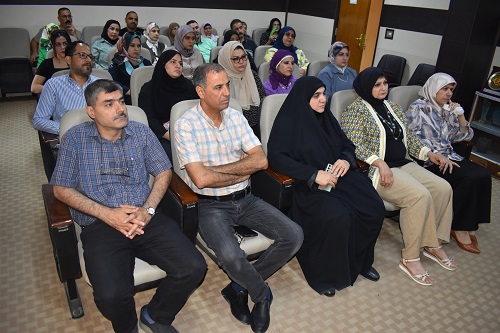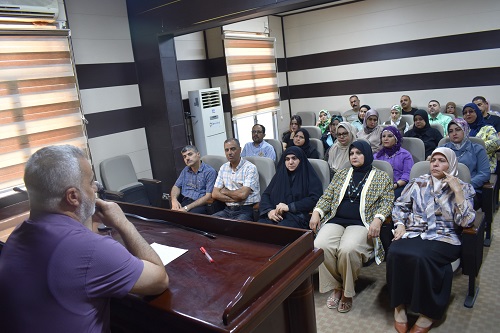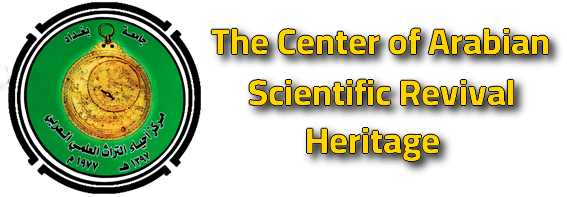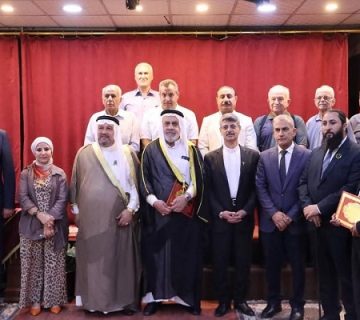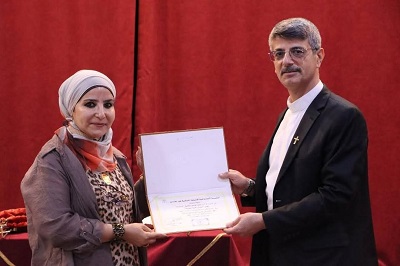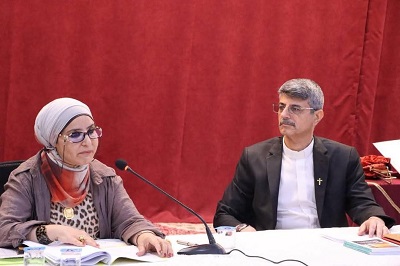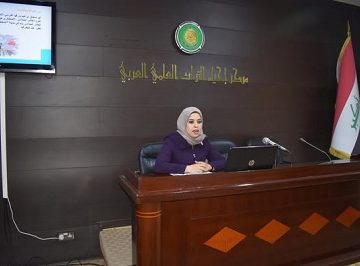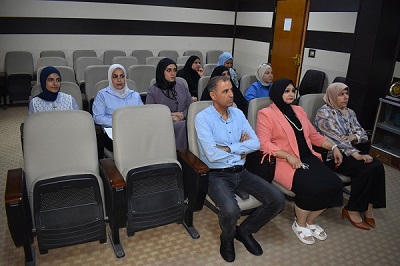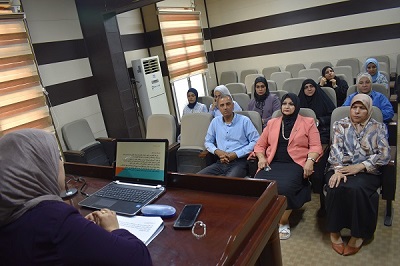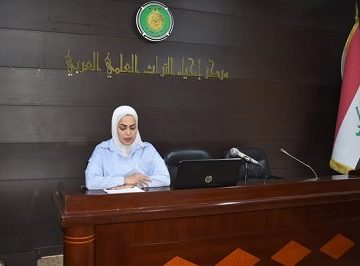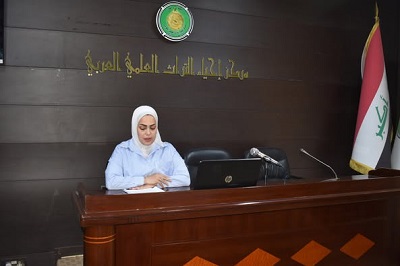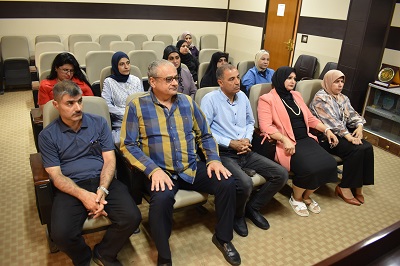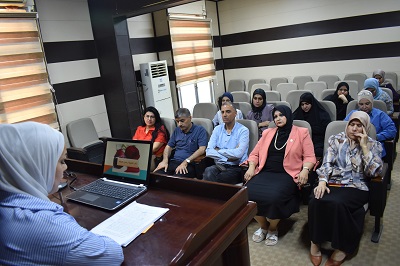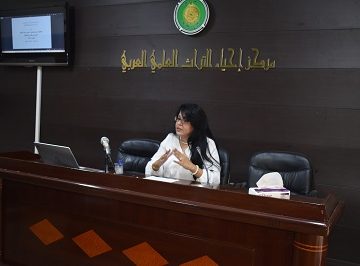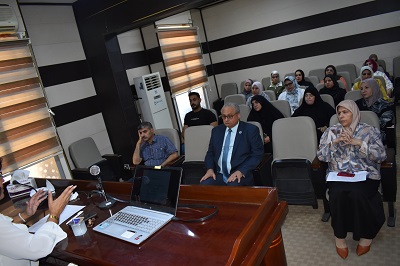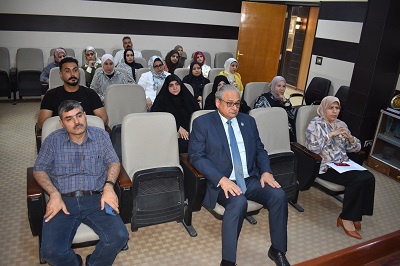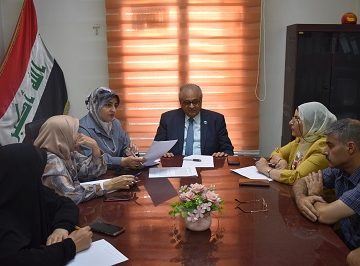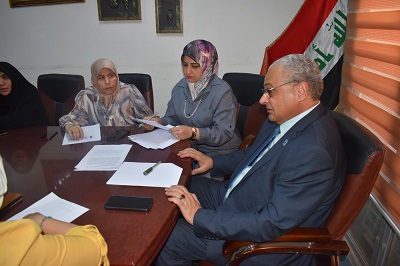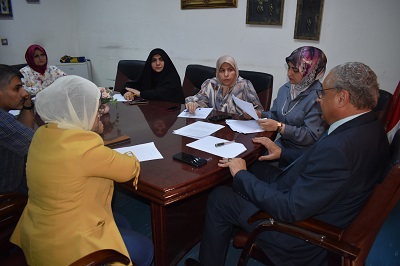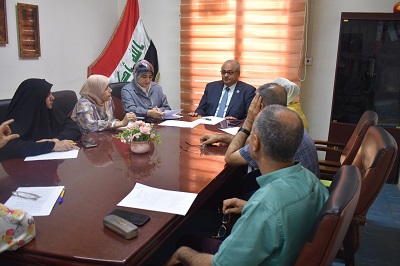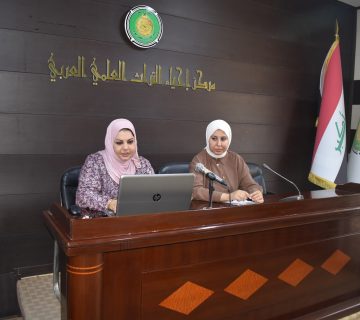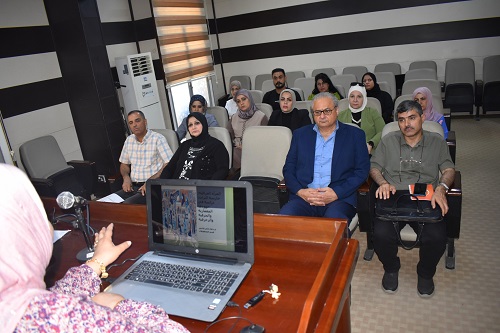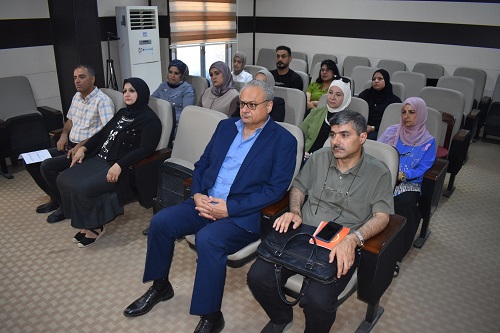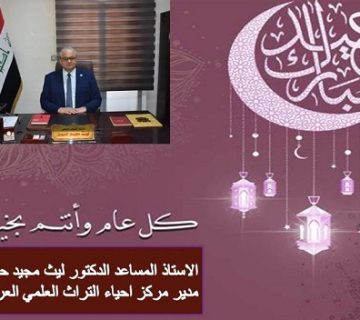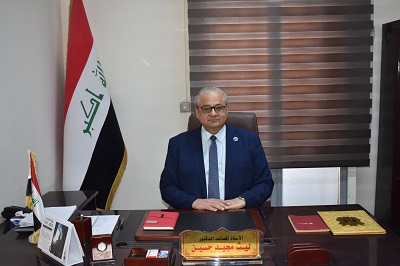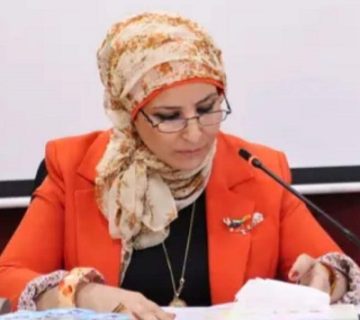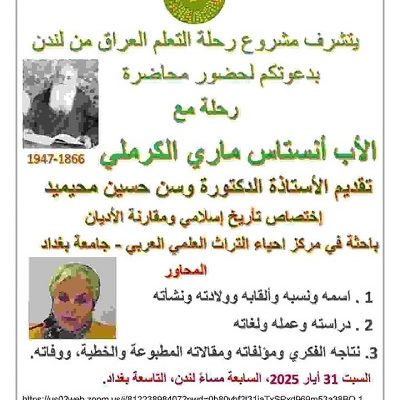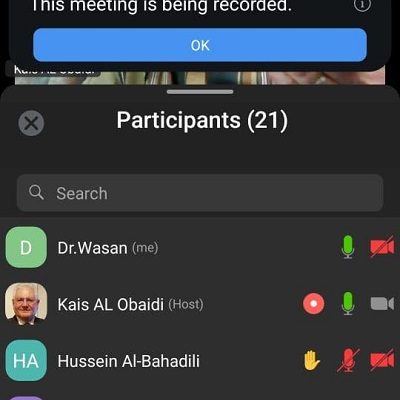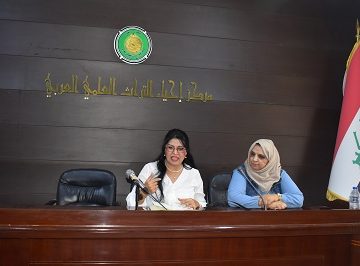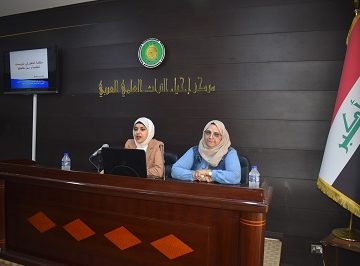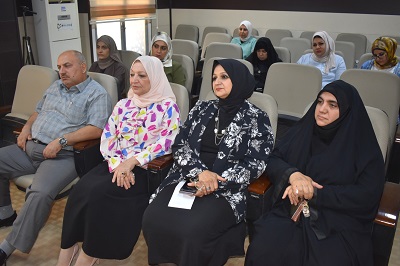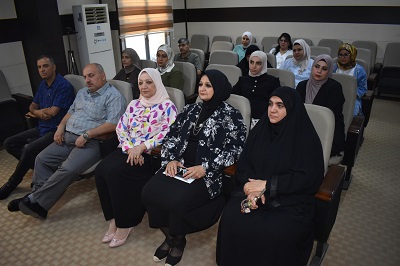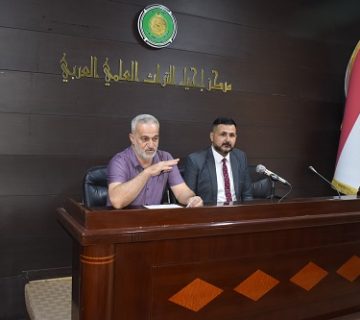
The center of heritage revival organizes workshop
At the invitation of Assistant Professor Dr. Laith Majid Hussein, Director of the Center, the Administrative Affairs Division at the Center, in cooperation with the Division of Accounts for Research and Service Centers at the University of Baghdad, organized a workshop on Tuesday, June 24, 2025, at 10:00 a.m., with the attendance of a number of professors and researchers. The workshop, which focused on explaining the mechanism of health insurance, was presented by Mr. Majid Qasim Al-Khatib, Head of the Payroll Unit. He spoke about the procedures through which individuals can access health services, the costs of treatment, and medical examinations. He explained that the aim of health insurance is to provide financial protection when healthcare is needed.
Mr. Al-Khatib also noted that there are several types of health insurance, including government, private, and supplementary insurance. He clarified the importance of health insurance, emphasizing that it ensures individuals receive necessary healthcare, reduces financial burdens, and improves public health. Furthermore, he explained that health insurance involves the deduction of a portion of the salary to cover healthcare costs, either on a monthly or annual basis. At the conclusion of the workshop, the Center’s administration expressed its gratitude to Mr. Majid Al-Khatib and wished him continued success.
